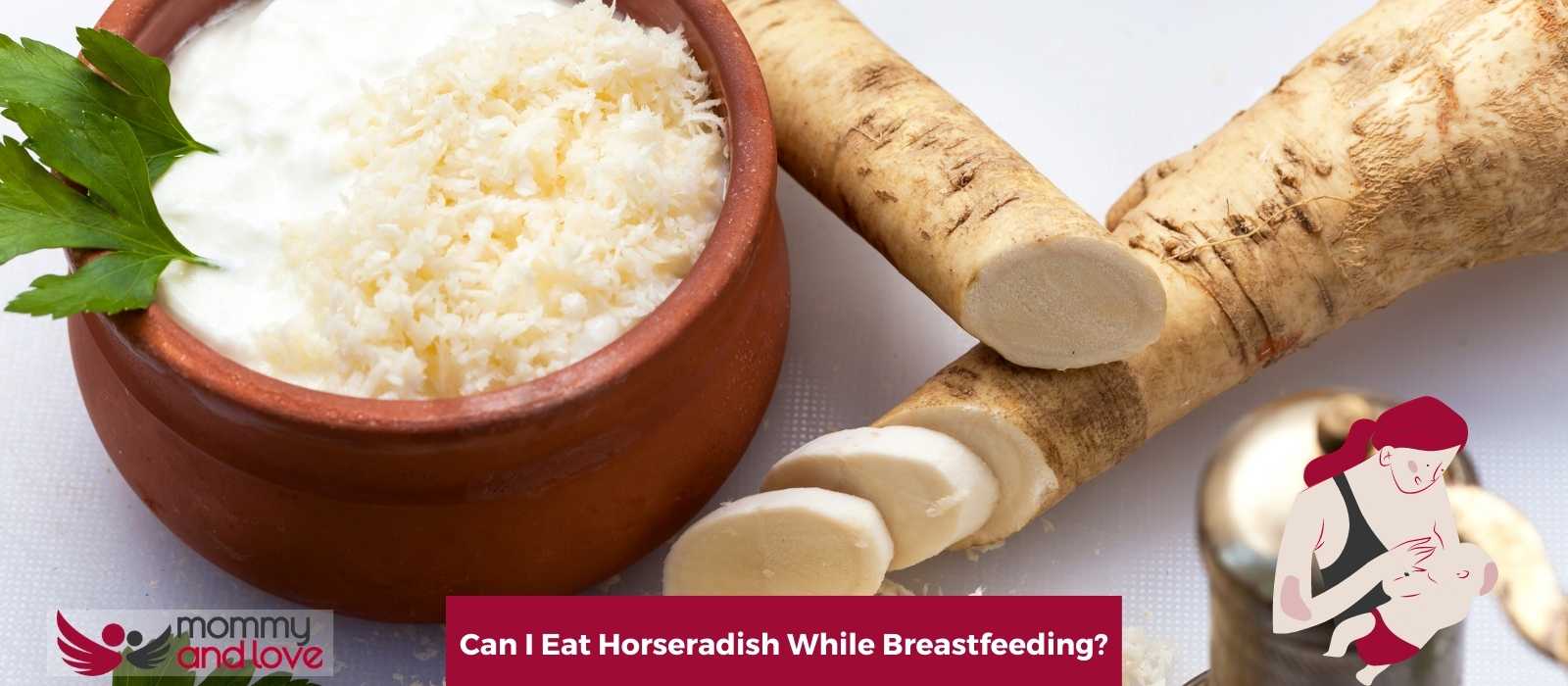When you’re breastfeeding, it’s important to be mindful of what you’re eating. Some foods can be passed on to your baby through your breastmilk, so you need to make sure that anything you eat is safe. Can you eat horseradish while nursing? Let’s take a closer look at this root vegetable and find out.
So, can you eat horseradish while nursing? Yes, you can, as long as you don’t mind the taste. It won’t have any impact on your milk supply, but it may make your baby’s diapers smell a little funky. Whilst overall horseradish is a healthy vegetable with a range of health benefits, there are a few things you need to consider while you’re breastfeeding.
What are the benefits of horseradish while breastfeeding?
Horseradish is a popular root vegetable for cooking and adding flavor to dishes. It has many nutrients and benefits, including aiding in digestion, boosting the immune system, and helping with respiratory issues.
The horseradish roots are used as a medicine as well as a food seasoning. The roots contain chemicals that may help protect against cancer cells and help fight inflammation. Horseradish also contains chemicals that may help prevent blood clots from forming in the body’s blood vessels by preventing platelets from sticking together too much or too quickly.
It is also rich in dietary fiber, vitamins C and E and folate. Fiber keeps our digestive tract running smoothly while vitamin E and vitamin C help with the development and repair of all body tissues.
It’s essential in helping with functions such as iron absorption or immune system functioning. It also has been shown helpful when healing wounds by strengthening cartilage bones while preventing future breakouts.
Folic acid is an essential vitamin for a pregnant woman that provides benefits for the development of babies during pregnancy. It can also continue to nourish a breastfed child through breastmilk.
Folic acid aids in the growth and formation of new, healthy cells for your body. Consider it as adding a B vitamin to your breastmilk to nourish both you and your child
Folic acid has been found to promote optimal brain development throughout childhood, so it’s critical that your kid gets it through his or her diet after birth.
What are the health concerns and risk associated with eating horseradish while breastfeeding?

Horseradish contains mustard oil which makes it smell so strong when you cut it. Mustard oils, which are considered toxic irritants, can pass through breastmilk in high levels that are more than enough to be considered dangerous to your infant.
This is the main reason why it’s not recommended for breastfeeding mothers and pregnant women.
It is important to remember that this is in large amounts, as you would take horseradish in medicinal amounts. Don’t worry if you consumed a little horseradish sauce on your deli meat last week, just know that it is not something to consume in large quantities since it can pass to your baby through your breast milk.
Horseradish root has a spicy taste and while there is no evidence to suggest that eating spicy foods should be avoided when breastfeeding, it is still best to eat them in moderation and if eating with beansprouts, make sure they are cooked..
The fresh root of horseradish when consumed or eaten raw can be extremely irritating due to mustard oils. It can also make a medical condition worse and cause adverse effects. For instance, it is not advised for people with skin irritation, kidney problems or urinary tract infections to consume this food.
Does eating horseradish affect breast milk?
Horseradish is not known not to affect breast milk supply in any way. However, it should be noted that horseradish contains mustard oil. It passes through your breastmilk and in huge amounts, it can potentially cause serious health conditions to your breastfed infant.
Can a breastfed baby be allergic to horseradish?

A breastfed baby can have allergies to horseradish.
Horseradish may seem spicy but it actually contains mustard oils which can cause mouth, nose, digestive system and urinary tract irritation even at low levels.
It may also cause a number of side effects and symptoms including stomach upset, bloody vomiting and diarrhea. It may also slow down thyroid gland activity.
Can I take horseradish supplements while breastfeeding?
Horseradish components may provide a number of benefits, including the ability to combat cancer, treatment of infections, and respiratory difficulties. This is one of the reasons it is useful in medicine. Horseradish supplements, on the other hand, should be taken under the supervision of a healthcare provider, especially if you are pregnant or breast feeding.
Take Away
Horseradish has a number of health benefits but none of them is lactation-specific. It can help with digestion, the immune system, respiratory issues, and brain development.
However, it is important to be aware that horseradish contains mustard oil, which can pass through breastmilk and in high levels and be dangerous to a baby.
Horseradish supplements should also be taken under supervision if you are pregnant or breastfeeding.
Consult your doctor or a medical professional if you have a concern or if you think it is possibly safe to consume horseradish.

This article was written by Sandra Baker – full time writer and the mother of four amazing kids (including twins!)
She’s also a breastfeeding counselor and has spent years helping new parents learn how to care for their children. When she’s not writing or caring for her children, Sandra likes to spend time reading and taking walks with her husband.




